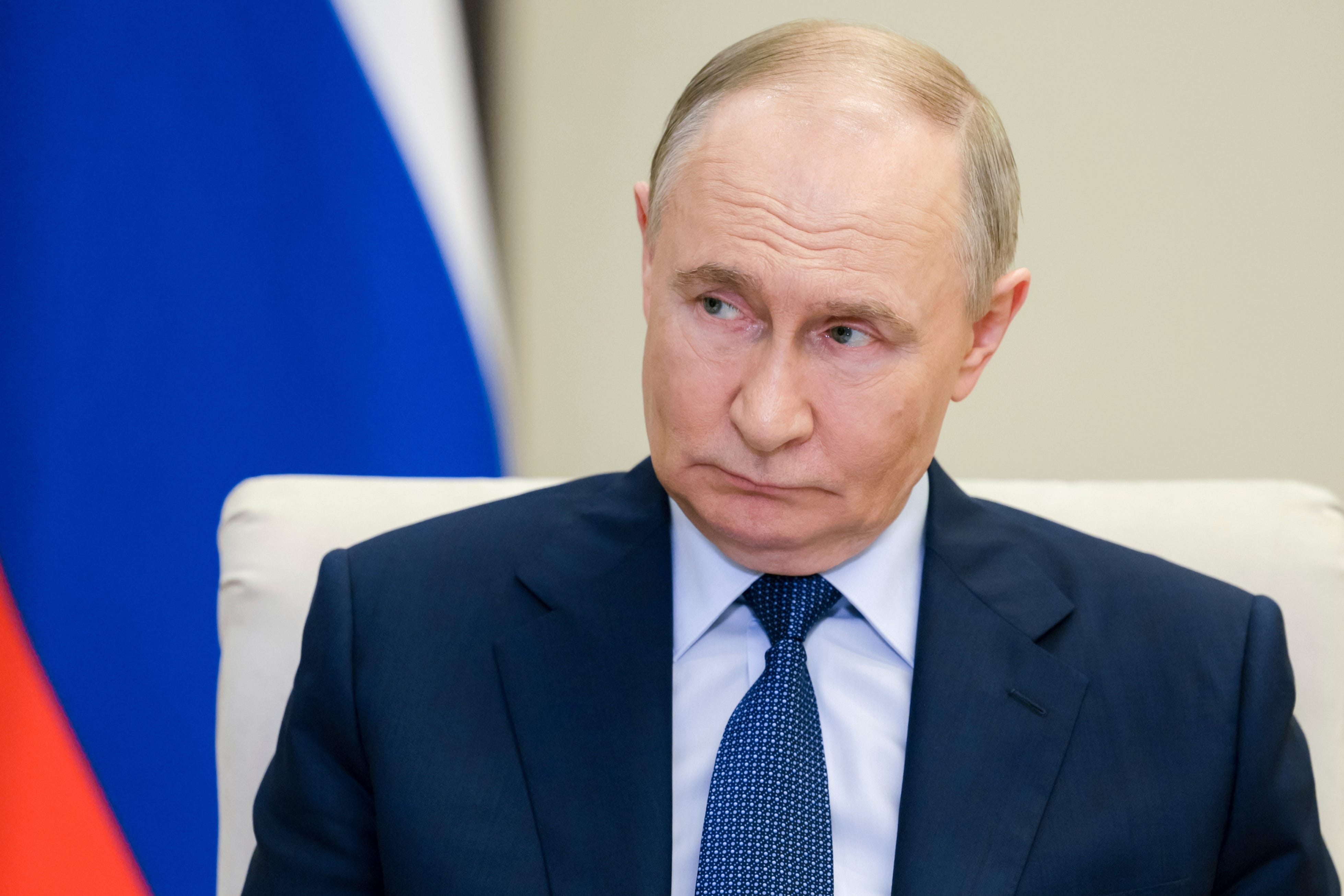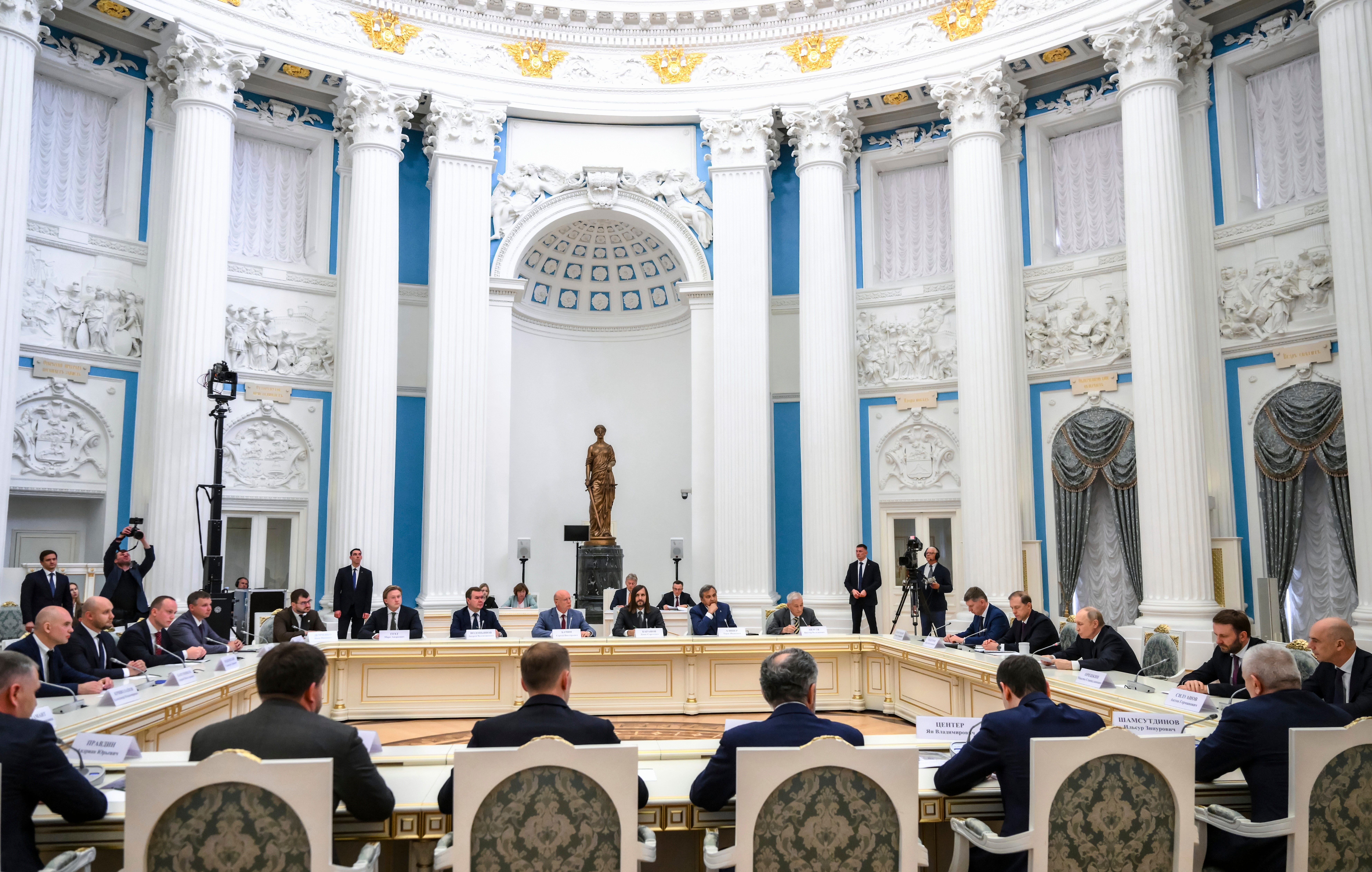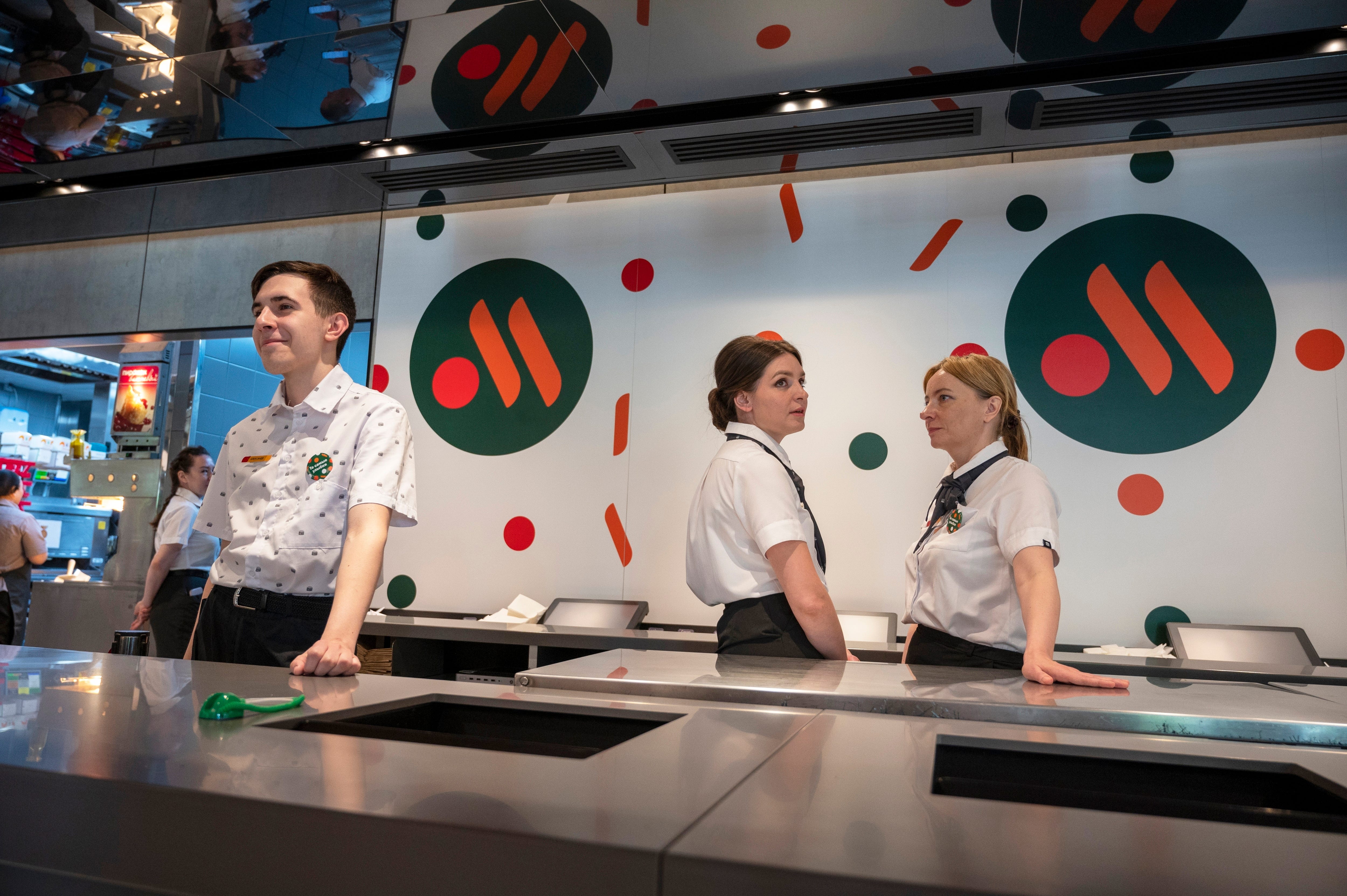
Gavriil Grigorov/Sputnik/AP
Russian businesses that took over brands like McDonald’s, Heinz, and Kellogg’s after the invasion of Ukraine are now lobbying hard to make sure those Western companies can’t come back — and the Kremlin is backing them up.
Leading the charge is Vkusno i tochka, which translates as “Tasty, Full Stop,” the fast-food chain that replaced McDonald’s after the American giant exited Russia in 2022.
Speaking at a Kremlin business meeting with President Vladimir Putin late last month, CEO Oleg Paroev said a McDonald’s comeback would undo years of work to develop the Russian brand.
“We created our own IT systems, our own kitchen equipment, our own innovations — and if the brand returns, all of that becomes foreign again,” he said. “The work of our Russian partners would, to some extent, be in vain.”
Putin responded with a pointed joke: “Only cowards pay their debts. It’s the same here.”
New law in the works
Days before the Kremlin meeting, Russian MPs advanced legislation that would make it harder — or even impossible — for Western companies to reclaim the operations they abandoned.
More than three years into the war in Ukraine, almost 500 foreign firms have exited the Russian market entirely, according to the Kyiv School of Economics’ Leave Russia database.
Many sold their local operations to Russian buyers, often at deep discounts, sometimes with buyback clauses that allowed for a potential return.
The new bill would give authorities the power to cancel those agreements, especially if the repurchase price was now below market value.
The legislation would formalize the Kremlin’s broader effort to permanently lock out foreign firms and protect Russian companies.
It would also “undermine the rule of law and reinforce investor fears that Russian markets are not just high-risk but fundamentally unstable and arbitrary,” said Roman Sheremeta, an associate professor of economics at Case Western Reserve University’s Weatherhead School of Management.
“Any Western company understands that the long-term risks are huge,” he told Business Insider.
The legislation is expected to be voted on later this year.
Who’s pushing back hardest?
The loudest support for the bill comes from the Russian firms that replaced global brands — and now profit from their absence.
Vkusno i tochka’s owner, Alexander Govor, bought McDonald’s entire Russian operation after the US giant exited Russia in 2022.
The chain says it now has about 930 outlets serving 2 million customers daily, and generated 187 billion rubles ($2.4 billion) in revenue in 2024 — more than double what McDonald’s made in its final year in Russia.
CEO Paroev said last month the company had to start from scratch, with no packaging, kitchen equipment, or supply chain.
“Our idea is to create a technology hub that will produce this equipment not only for us, but, in fact, for the entire Russian public catering market,” he told Putin.
Paroev may not have too much to worry about, given that McDonald’s told the Ukrainian advocacy group B4UKraine Coalition earlier this year it had no plans to return to Russia.

Grigory Sysoyev/Sputnik/AP
Other bosses made similar protectionist calls at the summit. Stanislav Yodkovsky, CEO of IVA Technologies, a Russian videoconferencing and communication firm, pushed for new import duties and restrictions on foreign tech firms such as Zoom and Microsoft.
Maria Gekht, CEO of Rusido, a Russian seed company, urged the Kremlin to maintain curbs on Western seed imports to help local producers scale up.
Protectionism or stagnation?
The Kremlin has touted Russia’s pivot to import substitution — replacing Western goods with domestic ones — as a growth strategy.
Economists have warned that state protectionism and insulation from foreign competition could stifle companies’ innovation and longer-term growth.
“Companies like Vkusno i tochka may report short-term gains, but their success is largely due to a monopoly-like environment created by the absence of foreign competitors,” Sheremeta said. “This is not innovation — it’s insulation.”

Dmitry Serebryakov/AP
While the Kremlin said this strategy would build self-reliance, critics argued it risked creating a bloated, inefficient system propped up by the state.
“In Russia’s case, it is leading to inefficiency, technological stagnation, and increased dependence on state subsidies,” Sheremeta said.
“Long-term, this model carries significant risks: economic isolation, capital flight, brain drain, and a sustained loss of credibility with global investors.”
The Kremlin is all in
The Kremlin’s support for trying to lock out Western companies is political as well as economic.
“The war, sanctions, countersanctions, and the reorientation to a war economy have all contributed to a shift back in time — to less market mechanisms and more government intervention,” Anders Olofsgard, deputy director at the Stockholm Institute of Transition Economics, told BI.
That shift, he said, has tightened the dependence of businesses on the Kremlin’s goodwill — and incentivized them to lobby for even greater protection.
And Russian politicians haven’t minced their words.
“We are not waiting for anyone with open arms. There will be a price to pay for past decisions,” industry and trade minister Anton Alikhanov said in February, state news agency TASS reported.
Dmitry Medvedev, the deputy chairman of Russia’s security council, echoed that warning in March, saying a return would be “difficult” but that no foreign firm had sought to do so.
Even as the Trump administration has been seeking a Ukraine cease-fire deal with Moscow, spurring discussions about a return of Western businesses to Russia, Putin doubled down on that stance last month.
“They put everyone in a difficult situation, ran away,” he said of Western brands’ exit from Russia. “And now, if they want to come back, should we lay the path for them? Of course not.”
The post Putin’s business buddies don’t want Western companies back in Russia appeared first on Business Insider.




